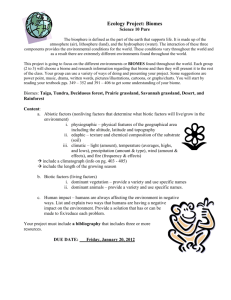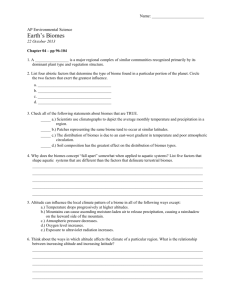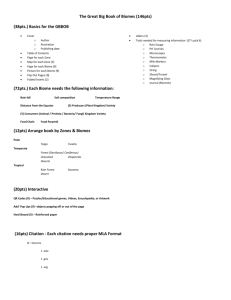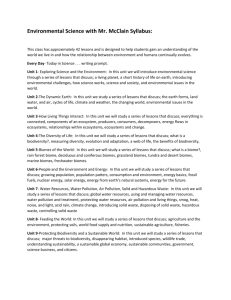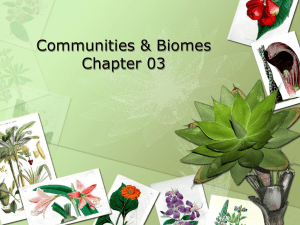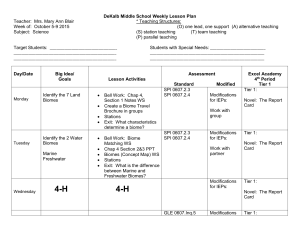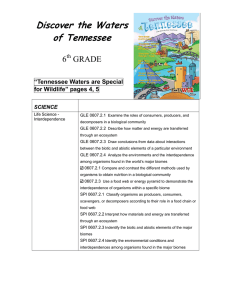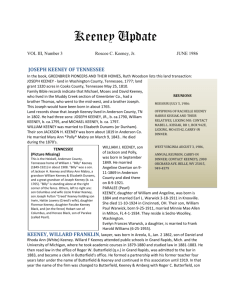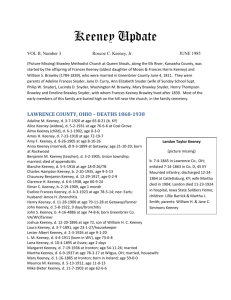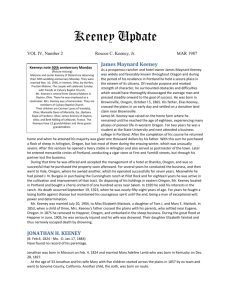Vocabulary Words
advertisement
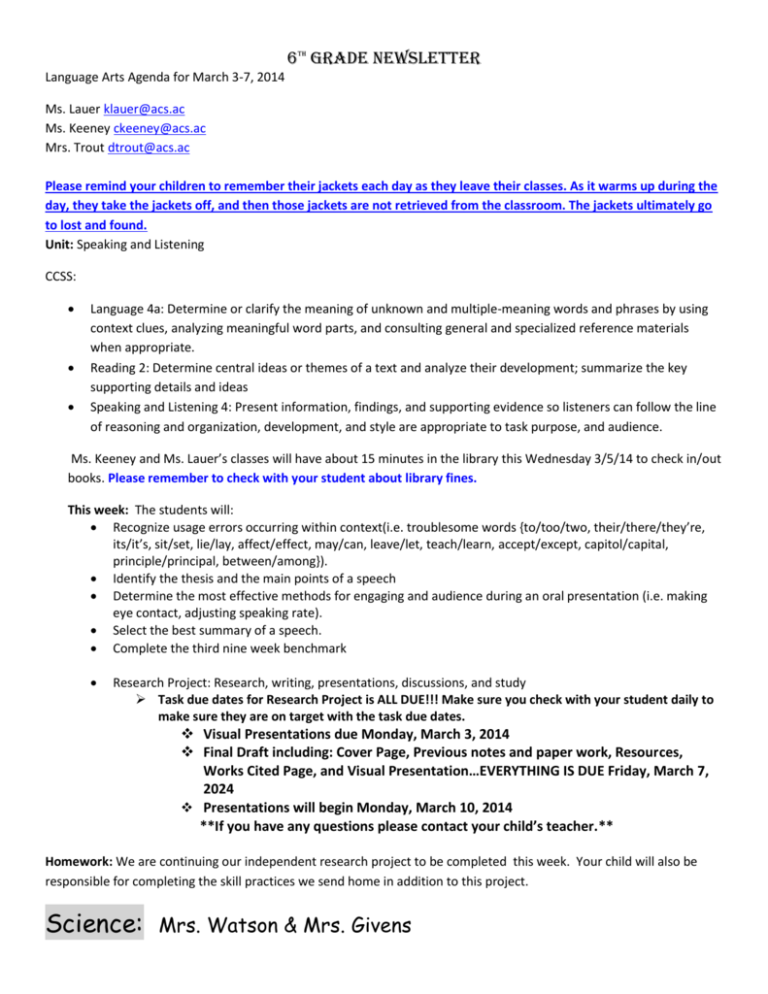
6 Grade Newsletter
th
Language Arts Agenda for March 3-7, 2014
Ms. Lauer klauer@acs.ac
Ms. Keeney ckeeney@acs.ac
Mrs. Trout dtrout@acs.ac
Please remind your children to remember their jackets each day as they leave their classes. As it warms up during the
day, they take the jackets off, and then those jackets are not retrieved from the classroom. The jackets ultimately go
to lost and found.
Unit: Speaking and Listening
CCSS:
Language 4a: Determine or clarify the meaning of unknown and multiple-meaning words and phrases by using
context clues, analyzing meaningful word parts, and consulting general and specialized reference materials
when appropriate.
Reading 2: Determine central ideas or themes of a text and analyze their development; summarize the key
supporting details and ideas
Speaking and Listening 4: Present information, findings, and supporting evidence so listeners can follow the line
of reasoning and organization, development, and style are appropriate to task purpose, and audience.
Ms. Keeney and Ms. Lauer’s classes will have about 15 minutes in the library this Wednesday 3/5/14 to check in/out
books. Please remember to check with your student about library fines.
This week: The students will:
Recognize usage errors occurring within context(i.e. troublesome words {to/too/two, their/there/they’re,
its/it’s, sit/set, lie/lay, affect/effect, may/can, leave/let, teach/learn, accept/except, capitol/capital,
principle/principal, between/among}).
Identify the thesis and the main points of a speech
Determine the most effective methods for engaging and audience during an oral presentation (i.e. making
eye contact, adjusting speaking rate).
Select the best summary of a speech.
Complete the third nine week benchmark
Research Project: Research, writing, presentations, discussions, and study
Task due dates for Research Project is ALL DUE!!! Make sure you check with your student daily to
make sure they are on target with the task due dates.
Visual Presentations due Monday, March 3, 2014
Final Draft including: Cover Page, Previous notes and paper work, Resources,
Works Cited Page, and Visual Presentation…EVERYTHING IS DUE Friday, March 7,
2024
Presentations will begin Monday, March 10, 2014
**If you have any questions please contact your child’s teacher.**
Homework: We are continuing our independent research project to be completed this week. Your child will also be
responsible for completing the skill practices we send home in addition to this project.
Science:
Mrs. Watson & Mrs. Givens
0607.10.1 Distinguish among gravitational potential energy, elastic potential energy, and
chemical potential energy
0607.10.2 Interpret the relationship between potential and kinetic energy
0607.10.3 Recognize that energy can be transformed from one type to another.
0607.10.4 Explain the Law of Conservation of Energy using data from a variety of energy
transformations.
607.2.3 Identify the biotic and abiotic elements of the major biomes.
607.2.4 Identify the environmental conditions and interdependencies among organisms found in the
major biomes.
Vocab: Law of Conservation, potential, kinetic, electric, gravitational, chemical,
elastic, energy, biome, abiotic, biotic, cause and effect, tundra, taiga, temperate
deciduous forest, temperate rain forest, tropical rain forest, desert, grassland,
estuary, coral reefs.
Monday
March 3, 2014:
Tuesday
March 4, 2014:
Wednesday
March 5, 2014:
Thursday
March 6, 2014:
Friday
March 7, 2014:
No school due to ice storm.
Review vocabulary words on energy from the board. Speak of the Law of Conservation. Review
vocabulary words of biomes from the board. Energy transfer is start up with worksheet and
homework. Biome worksheet is daily work with teacher direction.
Students will take 2 biomes and break them down to discover two new things about them they
didn’t know before and 2 things or ways in which they will remember or continue to remember
about this biome from now on.
Students will take final biomes and discuss them with their partner and discuss t-cap strategies
that will allow both to be successful on t-cap with biome questions. Come back to whole group
and share.
Quiz
Social Studies:
Mrs. Ripley & Mrs. Watson
6.1.1 Recognize the basic components of culture (language, common values, traditions, gov., art, literature,
lifestyles).
6.1.4 Recognize significant epics as historical sources (Iliad, the Odyssey, Mahabharata, Ramayana)
6.1.5 Identify differences between various cultural groups (European, Eurasian, Indian, Southeast Asian, Middle
Eastern, African, Native American).
6.1.8 Recognize how migration and cultural diffusion influenced the character of world societies (spread of
religions, empire building, exploration, languages).
6.3.5 Use the variety of maps to understand geographic and historical information (political maps, resource maps,
product maps, physical maps, climate maps, vegetation maps)
6.4.1 Recognize steps that give rise to complex governmental organizations (nomadic, farming, village, city, citystates, states)
6.4.2 Recognize the steps that give rise to complex governmental organizations (nomadic, farming, village, city,
city-states, states).
6.4.4 Recognize roles assigned to individuals in various societies (caste system, feudal systems, city-state, class)
6.4.3 Identify the development of written laws (Hammurabi’s Code, Justinian Code, Magna Carta)
6.4.5 Compare and contrast the lives of individual citizens in governmental organizations (ie., monarchial systems,
feudal systems, caste systems, democratic systems-Greek).
6.5.3 Identify types of artifacts by pictorial representation (Egyptian, Roman, Greek, Chinese, Native American,
Medieval, and Renaissance).
6.5.11 Identify characteristics, including economy, social relations, religion, and political authority of various
societies (Mesopotamian, Egyptian, Greek City-States, Roman Empire, Indian, Medieval).
6.5.15 Evaluate to what extent civilizations build on the accomplishments of previous civilizations.
Vocabulary Words: Apostles, Bible, Christianity, Constantine,
crucifixion, disciples, Jesus of Nazareth, martyrs, Messiah, Paul of
Tarsus, persecution, Resurrection, Atilla, Byzantine Empire, corruption,
Diocletian, Justinian, Justinian Code, Theodora.
Monday
March 3, 2014:
Out for ice storm.
Tuesday
March 4, 2014:
Discover Christianity and its relationship with Rome still today.
Wednesday
March 5, 2014:
Continue with Christianity and Rome as well as check quiz from last week for understanding.
Thursday
March 6, 2014:
Friday
March 7, 2014:
Fall of Rome. Hand out teacher made fill in the blank notes for students so they may read along
with teacher and whole class to utilize time fully.
Quiz on Christianity and Fall of Rome.
